[tweetmeme source=”connergo” only_single=false] About six months ago I wrote Conner’s Cuba Rules, a super popular post that raised the ire of some readers. Rereading my musings six months later, I better understand some of the dissent offered by commenters. Given that much has changed here in Havana since then and I’ve had several opportunities to travel outside of the capital thanks to my day job, I’ve compiled a new, hopefully more positive, set of rules to complement the first ones.
The Revolution will be televised: I’ve met a lot of visitors (and even some foreign residents) who have never seen Televisión Cubana. Granted, there are only five channels here, but you’re missing out on a big chunk of Cuban culture if you don’t surf those five at least occassionally. For the intersection of politics and journalism, check out the Mesa Redonda (see note 1) and the prime time news. The latter is important in and of itself for the weather report; pay special attention if Dr José Rubiera is forecasting. Meanwhile, a good baseball game can rivet entire households, the novela even more so. Only if you watch TV here will you understand what Cubans mean when they say: “it was like the Saturday night movie” (see note 2). Meanwhile, the music shown down here – videos, documentaries, concerts and jam sessions – can be as moving as the live thing. I’ve seen Chucho Valdés, Clapton and Queen, the Festival of Modern Drumming and some guy from Uzbekistan singing Talk Boom, a riveting song I’m still trying to track down – all in a single night on Televisión Cubana. Watch it; you’ll like it (or at least get a good laugh or song lead).
Pack a sense of humor: It always amazes me when I read something that disregards, overlooks, or otherwise fails to recognize the Cuban sense of humor, which ranges from the side splitting to the sublime. The writer can be someone who knows and loves Cuba long time or a visitor who has parachuted in and out on vacation. No matter the source, the frequency with which folks miss the funny stuff here is alarming. It’s true, a lot depends on speaking Spanish (or a crackerjack translator), but however you resolve the language question, if you’re comparing Cuba to China, Vietnam, or the defunct USSR, you’re missing one of the most important ingredients in the Cuban character. These folks love to share stories, jokes, and the occassional tall tale, and use their verbal prowess to enliven, laugh, and woo; it is what has enabled these people to resist so much for so long. Even without Spanish skills or a translator, if you’re not laughing a lot on a visit here, you’re doing something wrong in my personal and professional opinion (see note 3).
Use pesos cubanos: If you know even a little about Cuba, you know we operate on a dual currency system with pesos cubanos and pesos convertibles circulating side by side. Since one of my goals of Here is Havana is to bust myths, I always take the opportunity to debunk one of the most pervasive: that foreigners cannot use pesos cubanos (AKA Moneda Nacional, MN), but only pesos convertibles (AKA divisa, chavitos, CUC). This is 100% false. Anyone can use either currency. It’s what each can buy where the difference lies. Certain goods and services, for example, are only available in CUC including cooking oil and butter, hotel rooms and the internet. But fruits and veggies, surprisingly pleasant cigars, fixed route taxis, movie tickets and lots of other stuff are sold in pesos cubanos – if you know where to look. My advice? Change some CUCs into MN (1:24) to experience firsthand how much pesos cubanos can buy and how the double economy works.
So as to avoid confusion +/o more myths: you can always pay for goods and services priced in pesos cubanos with hard currency pesos convertibles but never the other way around. And some services (interprovincial buses, concert and ballet tickets) are sold in pesos cubanos to Cubans and residents, but in hard currency to visitors.
Bring your own reading material: Rarely a week goes by when someone isn’t griping to me about the lack of English-language books and magazines here. What is available is largely limited to historical and political titles and they are very expensive (and make for dull beach reading besides). The Kindle can be handy in this regard, but the bonus to bringing print publications is that you can pass them along to some avid English reader (like me!) upon departure. Drop me a line if you have some good (ie no romance novels or sci fi pulp) English-language reading material to donate to the cause.
Hightail it out of Havana: This may seem contradictory, given that I have an iApp to the city and I recommend in my guidebooks and elsewhere that visitors consider basing their entire trip in Havana. But things are changing fast here and though I’m a city girl by birth and breeding, I’m back peddling a bit on that advice. Havana, with its dirt, garbage, and graft, noise and air pollution, and materialistic ways (I did call Habaneros ‘logo whores’ after all) is distorting Cuba’s image. In short, Havana is not Cuba, which can be said of every major city around the world from New York to Manila, Managua to Dakar. But since visitors often request recommendations for “authentic” experiences and how to discover the “real” Cuba, I now find it prudent to advise getting out of Havana and exploring farther afield. With more flights, both charter and commercial, to provincial capitals like Holguín, Camagüey, and Santiago de Cuba, this is also a more practical proposition than ever.
Above all, have fun and keep your head about you!
Notes
1. The Mesa Redonda (Round Table) is a nightly “debate” show which discusses a topic (US aggression overseas; Latin American intregration) on which all four guests and the modeator agree.There are many jokes in these parts about the program; the shortest and sweetest calls it the Mesa Cuadrada, meaning ‘Square Table’ in literal Spanish, but meaning something more along the lines of ‘Dogmatic Table’ in Cuban.
2. The Saturday night movie here is prefaced by a parental warning, the most common of which alerts viewers that the Hollywood action shlock about to be shown contains Nudity, Violence, & Foul Language. To wit: the old, slow, over-crowded camello buses (of which I took many), were always called ‘the Saturday night movie.’ [NB: did it annoy you to have to scroll down to read this note? Yeah, me too, but I haven’t been able to figure out how to hyperlink notes within posts; if someone has a solution, please get in touch].
3. Trying to connect to and use the internet excepted. Even casual visitors know that connectivity is no laughing matter here. Indeed, I flirted with the ledge and sharp knives today as I frittered away several hours trying to connect. Once I “succeeded,” it topped out at 9.6kbps – not nearly fast enough to load even a simple web page before timing out.

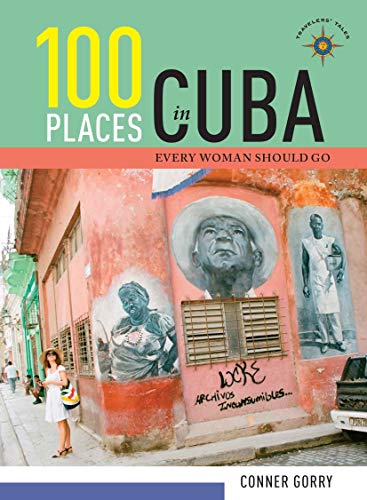
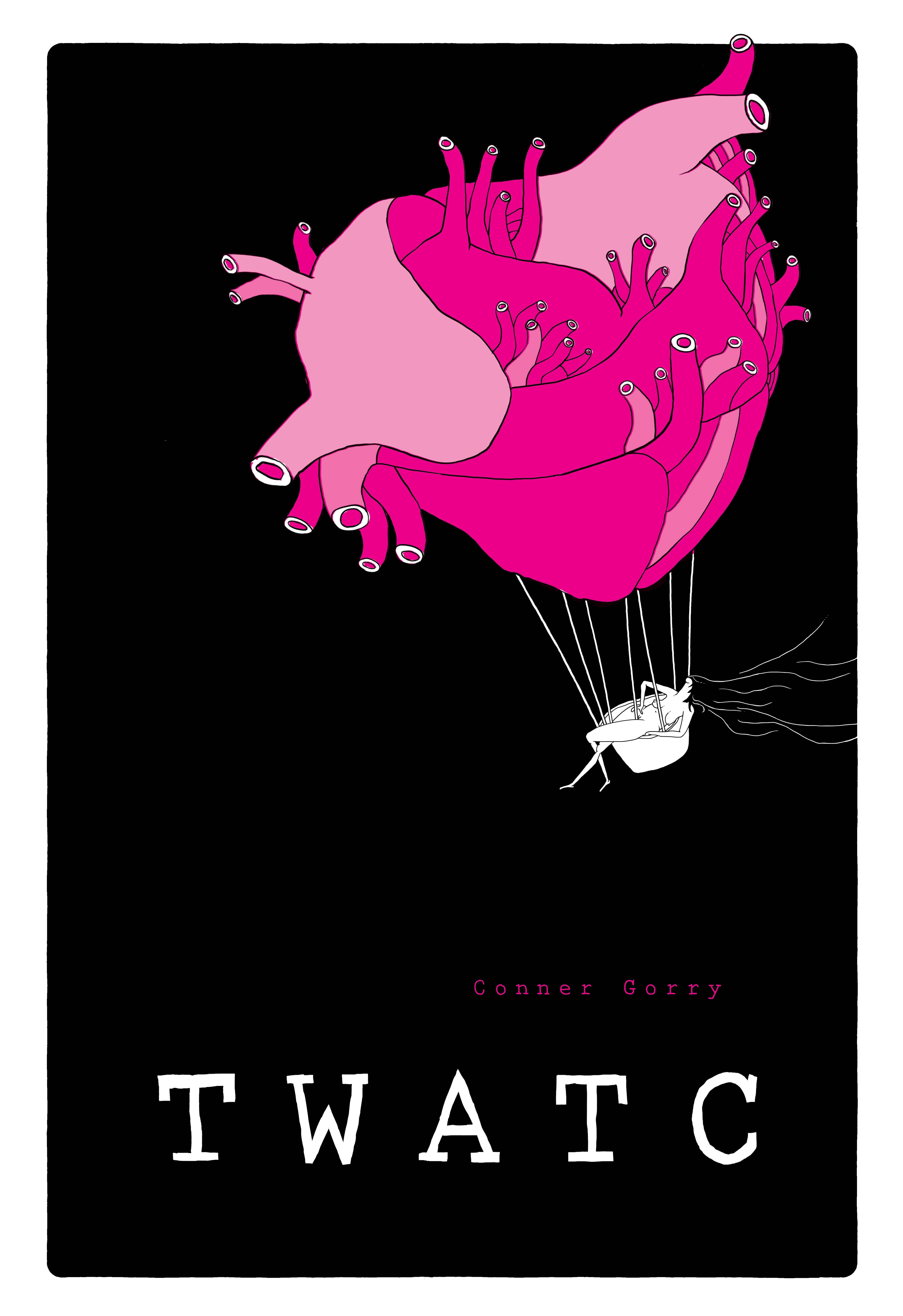
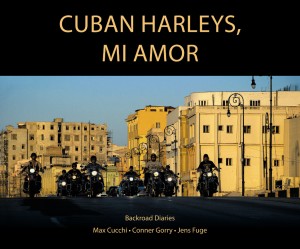

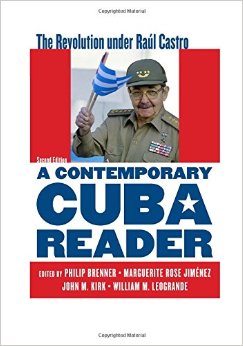
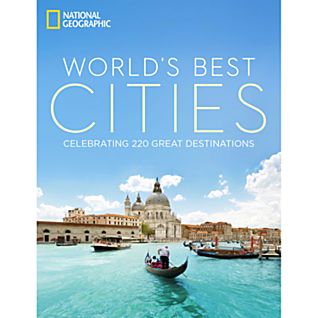
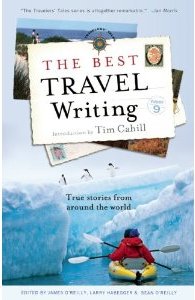



Lovely update thanks.
Re “And some services (interprovincial buses, concert and ballet tickets) are sold in pesos cubanos to Cubans and residents, but in hard currency to visitors.” – another example is domestic Cubana flights have a quota of seats to be sold in CUP. I think Mrs A paid approx. 80 CUP(!) recently for the Camagüey-Havana flight whereas for the adjoining seat I paid $101CUC. So for the Cubanos payment in CUP and highly subsidised as well.
PS I continue to admire your tenacity/resilience coping with the internet. That is one of the deal breakers against a really long term stay there for me.
Thanks John. Yeah, the Internet. At least I have it but daaaaaaaaaaaamn, no es facil. (also: big ups to those in charge for not blocking Twitter, FB, etc etc)
Also, the terribly slow connection is why I don’t change the photos on the blog as often as Id like (but Im going to give it a try now!)
Perfect, Conner! As always you have your finger on the pulse of Cuba, especially about the wry sense of humor of los Cubanos.
Any local knowledge on what’s up with the ALBA-1 cable? I know some Etecsa pichons are in trouble, and wondered if there is a connection?
The only news about the cable is that there’s no news. Its like a running joke over here now.
Conner, another great post. Keep it up despite your trying times with the internet. I’ll send you a message regarding books. Kelly
Que bien! I saw your email and we have a lot of the same taste in books – Ive read 3/4 of your list already!
Nice update! Kind of wish I’d watched more TV now, but I did do a bit of reading at least. Nothing like the seven-line headline diatribes in Granma.
Have to say as well…. I couldn’t wait to get back to Havana. Not sure why exactly. Agree that it’s a whole different beast, but just found the movimiento there exhilarating. Wish I had seen more of the rest of the country, but wish I’d seen more of Havana too.
Keep fighting the good fight (against poor connectivity)..
People often ask me why I so love Havana and some of its hard to put a finger on but there’s this: like New York, its a one of a kind city, where the population of that city knows it, where not everyone can groove to or make it, but those that do love it and will defend it at all (or at least most) costs. These are themes I explore in my book Here is Havana (currently in search of an agent).
And Phil: I guess that means you’ll just have to come back!
Thanks for posting this – gives a great feel of the reality of life in Cuba. I was on the island for a month in November and December working around urban agriculture. This work is of course world class – but what really struck me was the generosity, warmth and sense of humour of all the people I met. I am a Spanish speaker but the Spanish in Cuba is quite something and very different to what I am used to. However, despite this, a great leap in my experience of communication was when I started to understand enough of the ridiculously fast language to join in jokes and laughter with people. I was also lucky to travel to a variety of different locations on the island, some touristy some more off the beaten track. The scenery, architecture and history of the places I visited was fascinating but without doubt it was the crazy kindness and openness of the people that I met that makes me want to go back.
Oh, and for your reference – there are now a couple more copies English language versions of Barbara Kingsolver, Cormac McCarthy and a variety of English gardening books knocking around Havana, Santiago de las Vegas, Santa Clara and Cienfuegos. So if you’re passing through and need something new to read you may be able to track them down. And knowing Cuba I suspect that finding them wouldn’t be outside the bounds of possibility!
Yay! Another visitor who “gets it.” Anyone interested in permaculture and the like should check out Liz’s blog. Cheers!
When I was there I wish that I had had more time to explore the entire island. I need to return for sure! And this time I’ll watch a little tele!!!
Love that camello – saturnight movie comparison – it’s so true! The camellos are gone from Havana (i believe some were sent to the provinces to fill serious needs) but now we have the “P”s (P-1, P-2, P-4, etc) which have their own charms…
By the way, Cuban TV is a chance to catch up on all those flcks you never saw, not just Hollywood, but Latin American, Russian, European, Chinese, etc.
Almost all of the “movie shows” have a host who gives you a little film criticism, a little cultural and historical background, sometimes a little too much, but sometimes very informative. My favorites:
– Letra filmica — (Tues. 10:30 pm) — movies based on books
– Nuestra America (Wed. 10:30 pm) Latin American films – host Frank Padron is very cool and apparently a big J-Lo fan (usually plays a Latin music video before the flick)
– Septima puerta (Fri. 10:30 pm) – Rolando Betancourt hosts, usually good and usually (relatively) new films — His presentations sound like his well-written columns in the Granma….
– Espectador critico (Sat. 10ish pm) – usually the host interviews someone on the topic of whatever the artsy/political/sometimes-controversial film is about. If you’re not interested in the blah-blah, gives you time to get your movie snacks ready…
Hiya! thanks for that rundown. Some observations:
– Nuestra America: rarely in English, sometimes in Portuguese w Spanish subtitles, but usually Spanish-only, so not for everyone (though Frank is the bomb and is also the host of monthly Cine Club Diferente – LGBT movies followed by debate. this month’s debate ending in a shouting match!)
– Septima Puerta: hosted by “Bigote” (in Conner-speak; this guy’s moustache only rivals Serrano’s on the nightly news). He shows great movies but has that unfortunate Cuban habit of giving away the ending. Sometimes I feel like I don’t have to see the movie after his muela.
– Letra Filmica: caught some of it last night (bw innings – the Leones vs Cocodrilos last night smoked!) but what happened to the host? I forget her name but se fue o que?
– Espectador Critico: great stuff and the host is a serious interviewer, respected by many.
On the Letra Filmica host — film critic Jacqueline Venet — maybe she’s on vacation?
Forgot to mention “De Cierta Manera” (Sun. 9 pm) a relatively new program (a year or two) that shows Cuban films from the archives that are not usually shown in the theaters, as well as Cuban film industry interviews and trivia
Conner,
Love the blog. Any plans to port your app to Android?
Thanks,
Bruce.
Hi Bruce (cool name by the way). The folks at Sutro tell me its coming soon – I hope so; I get a query like yours once a week or so. Cheers and thanks for the props on the blog.
Hi, Conner –
Another way to describe the Mesa Redonda is five people arguing vigorously, all from the SAME point of view. In recent months the program has finally begun to present some discussion of Cuban domestic issues, such as the programs to lend money to Cubans in need for domestic repairs.
Your blog is terrific and I am glad we ran into each other at the Cine Club Diferente this month. See you next month, tambien!
Walter
Hats off to Mesa Redonda for tackling domestic issues as well. This is in direct response to popular opinion (and if Im not mistaken, Taladrid’s appearance on Amaury’s show). It took a long time, but better late than never, I always say (and I never say never!).
A group of people with the same point of view will never render as rich a conversation as a group of people with varying POVs – as long as that conversation is respectful, well thought out and presented. Of course, that’s just my point of view! (And El Chino’s also judging from parts of his speech last april.)
As Ive mentioned before folks, if you want to receive news from and about Cuba, Walters Yahoo group CubaNews is superb.
Hi – I’m headed to Havana in two weeks to do some photography. I am curious where else you would recommend visiting since you mention getting out of Havana to see the “real” Cuba. The point of my trip is photography, particularly people. Are there any other places you would recommend I visit? We are also staying two days in Trinidad. I would greatly appreciate your insight. Also, any authentic spots you can recommend to see live dancing/music in Havana??
Hey Erin. You are going to have no shortage of awesome photo opps here – not only the place, but the people are some of the world’s most photogenic. And Cubans are huge hams; they love to have their picture taken. Indeed, sometimes its hard to get a shot without someone giivng you a “thumbs up” – as soon as they catch you shooting them, many Cubans like to flash this sign for the camera.
Whenever I talk about the “real” Cuba, its a bit tongue in cheek since it’s all “real” in its way. This is also a point of debate among travel writers (what’s real, what’s authentic) and it carried through to this post.
In Havana, I woulld catch the ferry to Regla for something a bit different; in Trinidad, check out nearby Casilda and La Boca. For music and dance, there is no shortage (just steer clear of Callejon de Hamel). There are scads of places in the app and I post rec’d concerts and cultural stuff daily on my Facebook page.
Have a wonderful trip!
I am a bit ashamed to confess that Cuba remains for me still a bit of a myth… seems like a tierra very lejana and I am bound to believe all of the clichés you hear around. That’s why I really enjoy reading your posts.
The most amazing fact I learned today was the dual monetary system – a concept hard to grasp even for me, coming from Argentina and having had to deal with “real” money and “fake” money (bonos) in the past…
Nothing to be ashamed about – the misinformation and Cuba “folklorico” abounds. I was surprised to come up against a lot of anti-Cuba sentiment, based on total misinformation, when I was in Buenos Aires. I know you’re a transplant to Holland, but with all the Argentinean medical students on free 6 year scholarships at the Latin American Medical School here in Havana, plus the Che connection, it was a bit of shock. So we’re all still learning!
Im glad my posts help clarify this crazy place a bit.
Oh I think that will depend on where you move in Argentina. Nowadays with a big majority of Argies supporting the present populistic gov’t of Kirchener you will find lots of people who want a Cuban sort of state transplated to Argentina. We are a people of extremes … 🙂
Pingback: Conner’s Cuba Rules Part II | connergo's Blog
Fabulous advice there that I’ll definitely take on board when I visit Cuba. 🙂 The Cuban currency really confused me so at least that’s not cleared things up.
The double currency is probably the single most misunderstood part of Cuba for travelers (that, and Callejon Hamel)
Pingback: La Bola en la Calle: Crime in Cuba | Here is Havana
Hi Conner,
Glad you mentioned Camaguey, as you know I’m a big, big fan of the city and it’s people. The only thing I can’t get used to is the damn roosters starting at 5am and the clomping horses at 6. Love the blog.
Rick
Roosters at 5am, AKA “the gringo alarm clock!”
But Ill take crowing roosters and clomping horses over pigs squealing at the slaughter which is how I remember Holguin!
You do have a point. Pigs set the dogs off and then a chours of offbeat noise. But the worse I think I’ve ever experienced was in Minas after the rains whence the stench two days later from all the animals that drowned during the flood.